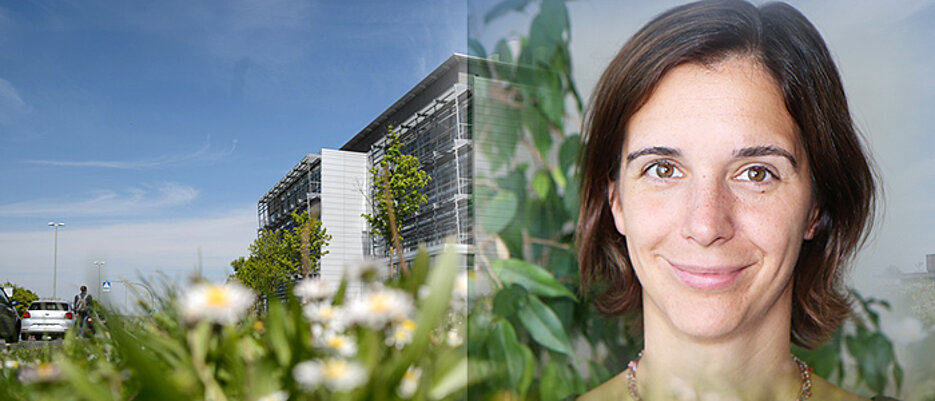From Würzburg into the world
11/30/2017Her career path took her from Würzburg via California to Berlin where Dorothea Fiedler heads the Leibniz Institute for Molecular Pharmacology. She considers her children to be a great contrast to the world of science.

Which jobs do graduates from the University of Würzburg work in? To present different perspectives to students, Michaela Thiel, the director of the central alumni network, has interviewed selected alumni. This time it is Professor Dorothea Fiedler's turn.
The scientist studied chemistry in Würzburg and did her doctorate in the US at the University of California. The Princeton Alumni Weekly described her as a "rising star on the research horizon". Since 2015, Dorothea Fiedler has been the director of the Leibniz Research Institute for Molecular Pharmacology (FMP) in Berlin and a professor at the Humboldt University in Berlin.
Professor Fiedler, can you describe your current research briefly and understandable to lay persons? We study how cells communicate and interact with each other and internally. Think of cells as a huge communication network, much like a large control centre, and add communication based on chemical processes with state-of-the-art technology to the picture. We are already able to characterise some of the components in these networks quite well, but identifying who is talking to whom and when still is a major challenge. Scientists from my team investigate new components in these communication networks in order to characterise and manipulate them.
And what is the goal of your research? Our long-term goal is to decode the concrete signalling functions of these components and use this knowledge to accompany the development of new therapeutic strategies against cancer, diabetes and obesity.
What fascinates you most about your research? I am an inorganic chemist who is fascinated by the biological aspect. This first started when I was studying in Würzburg and we learned about the molecular level of biological processes during a lecture. I like to see myself in an interface role: as a chemist with a view of the highly complex biological processes and a focus on signal transmission. What intrigues me in this context is that the research here at the FMP follows a broad interdisciplinary approach which combines structural biology, genetics, biochemistry, chemical biology and imaging techniques.
So you don't develop new drugs? No, we are doing fundamental research at the beginning of the chain: We study the biological function of the proteins and bioactive molecules, their molecular mechanisms and causes, as a precursor to finding active ingredients for new therapeutic drugs in a manner of speaking.
A lot of scientists complain about obstacles on their career path – also in terms of achieving a satisfying work-life balance. What's your take on this? Often the opportunities might be the same, but the implementation is different. In my experience, women tend to be more reticent when it comes to claiming certain opportunities. On the other hand, young men often find this difficult, too. I recently attended the forum for young chemists. One of the subjects discussed was that it can often be interpreted as a lack of motivation or weakness when men want to take parental leave.
Are there any differences between the US and Germany? In the US, I had the impression that gender equality in pursuing a career is considered more common. There were so many young scientist families on the Princeton campus – it was normal there for both partners to work. Whether daycare has a negative effect on children was not an issue.
And how do you manage to reconcile work and family? Here in Berlin, I sometime use creative ways; we have a great team and I can rely on my co-workers. They will even come to my place when I am working from home because my children are sick. For me personally my children are a great contrast to the scientific world – for instance through a total loss of control, which sometimes happens when I come home (she laughs).
Do you have any advice for young female scientists? They should be brave and follow their passions and seize great opportunities when they come up. Also it is important to stay optimistic and not allow others to impose their role perceptions on you. There are various possibilities; you can find the one that suits you, but you have to have the courage. I have learned that when it comes to family not everything has to be done to perfection. Kids help you put things into perspective.
What is your best memory of your time as a student in Würzburg? The wine festivals and that we formed such a good community during our time at university. Our degree programme was rather school-like and we spend almost the entire time together as a group.
Thank you for the interview.






